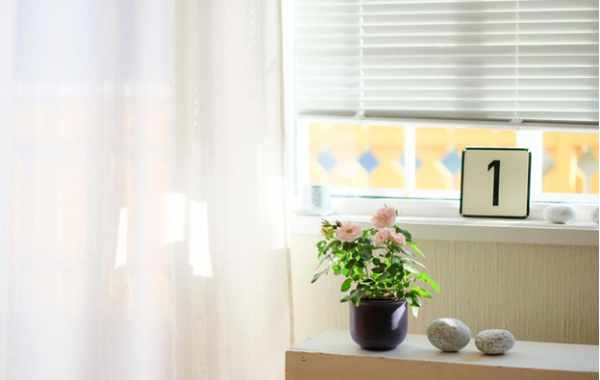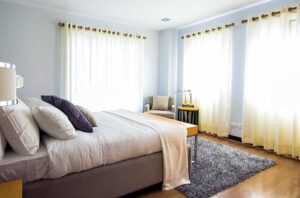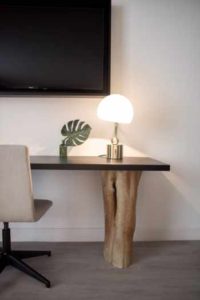Worried about extreme high temperatures during the summer? Curtains have been around for ages. Then came window shades of another kind. Window shades, or window blinds, do a better job of keeping heat from entering a room—which prices from cheap to expensive. In this article, we will discuss the different types of window shades, and their pros and cons.

What Are the Different Types of Window Shades?
Most people already understand this but in case you don’t, they are installed over windows to block both light and heat from entering the space. With technological advances, we now have intelligent systems where electronic sensors can even pick up the amount of heat entering the room.
The automatic window shading is activated when the room temperature increases beyond a particular point, blocking the sunlight. There are even window shades that live outside a house or building. Rollac open-style awnings are retractable and come in a variety of styles. These types of window shades are almost always in a commercial setting.
What Are the Types of Window Shades?
Window shades come in different shapes, sizes, and styles, and each is suitable for a particular application. We will be looking at the pros and cons of the most commonly used shading options.
Plantation Shutters
This is a classic form of window shading and gives an exquisite look to the house. It is available in multiple colors and can be made to complement your room’s interior. If you are looking for something classic, then shutters are the right choice.
Pros: Improves the look of a house and increases the property value.
Cons: Regular maintenance is required, and there is a wide range of shutters available, which makes choosing so hard.
Roller Shades
These are becoming more and more popular for use in professional environments. They are very easy to use and low maintenance as well. Many roller shades or roller blinds come in automatic models where the entire shade rolls up with the press of a button on the remote control.
Pros: It can be partially opened or closed to control the amount of light entering a room, is easy to install, and provides an adequate amount of privacy.
Cons: It goes more with a professional or modern interior and not interiors with vintage decor.
Roman Shades
They are widely used in America because they are stylish and come in a wide range of fabric choices. You can choose any kind of knitting on your Roman shades, which makes it an important part of the room’s interior. The shade is a single piece of fabric, and it provides a lot of privacy.
Pros: It is easy to install and comes at a very affordable price. There are also a lot of choices of fabric and full light control.
Cons: Complete blockage from the single fabric can inhibit air circulation when the windows are open.
Balloon Shades
This style can fit in any type of house, be it traditional or modern. They have cords in the fabric attached to rings at the back, which provides that plumped-up look much like a balloon. The shape provides a pleasing aesthetic feature. It is also made of a single fabric that offers a lot of freedom when decorating your home.
Pros: Quick installation and a unique design make it a favorite of many households.
Cons: Offers less privacy, and regular maintenance is required; won’t fit in with professional or corporate environments.
Tie-up Shades
As the name suggests, these shades can be rolled and tied in place with ribbons that are a part of the shade. It provides an adorable look to a room and lets in a lot of sunlight when it is required. The design is effortless, and the rolling up is done manually.
Pros: Elegant design, easy to use, low maintenance, and easily customizable.
Cons: Inefficient as there are no cords or buttons to roll up the shade easily.
Skylight Window Shades
Many modern homes are equipped with skylights, and these window shades are specially designed for them. They provide a hassle-free approach to setting up a permanent solution for controlling the amount of light entering through the skylight. These come in motorized versions, which are also very affordable considering the complexity of their task.
Pros: They are weather-coated, which protects them from rain and hail. Most have automated electronic functionality.
Cons: Needs occasional cleaning and oiling of the movement mechanism. Don’t forget they are also difficult to install.
Cellular Blinds
This type of shade provides a lot of insulation from sunlight and has a very good build quality. These shades are robust, and functional, and provide complete privacy. The shade can be lowered even below the window sill and can provide complete darkness during the daytime.
Pros: Provides privacy and insulation, and the different fabric options can be used to control the amount of light and heat entering a room.
Cons: It is not a fashionable option.
Solar Window Shades
This type of shade is used to limit the amount of sunlight entering the room while maintaining a little bit of visibility. The material is delicate and has a very fashionable look to it. It has an effortless design and does not require much maintenance.
Pros: Blocks unwanted glare and reduces UV radiation, which helps maintain the quality of indoor furniture from the damage that can occur with long-term exposure to direct sunlight.
Cons: It is not very attractive looking.
Conclusion
Window shades are an effective way of stopping unwanted solar glare and heat from entering a room. They come in many shapes and sizes and can work in lots of different indoor environments.
Feel free to contact a local interior designer if you’re looking for help. Then again you can always DIY it with Pinterest interior design inspiration.



